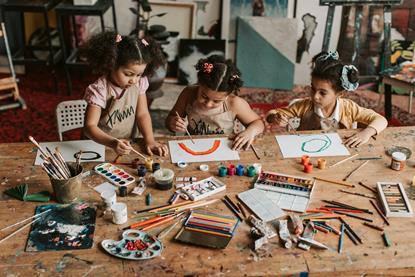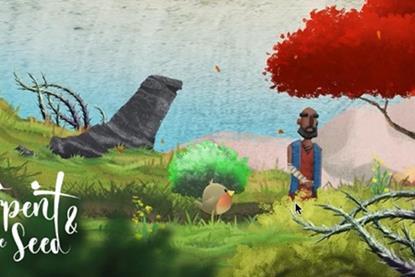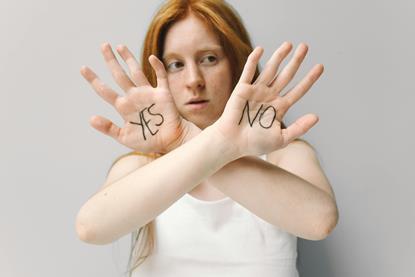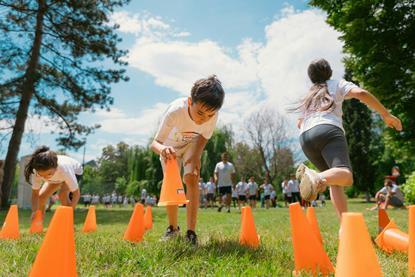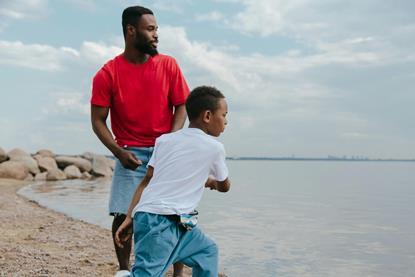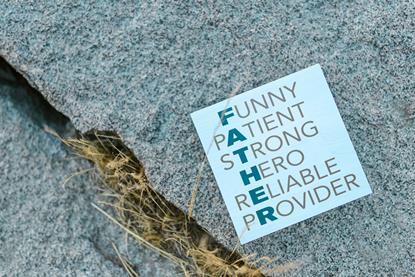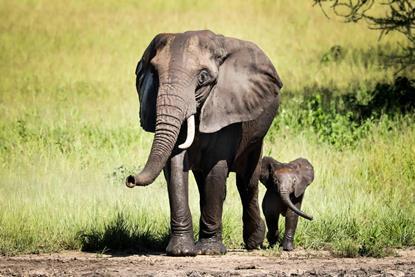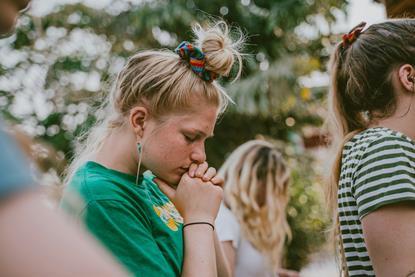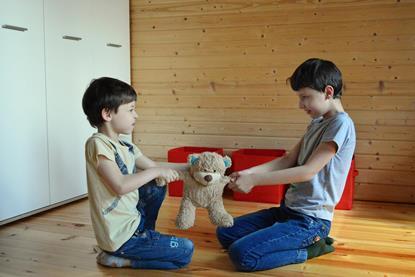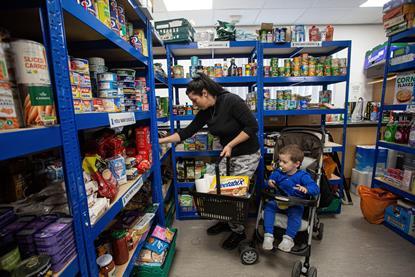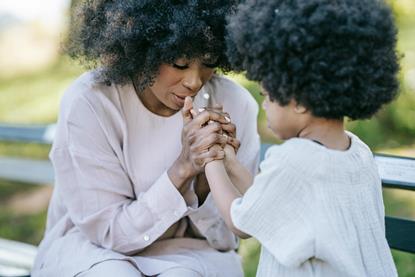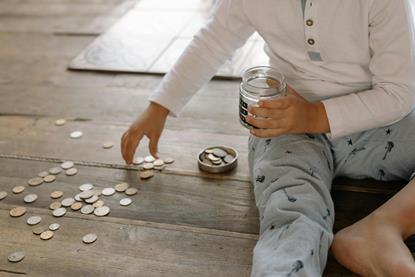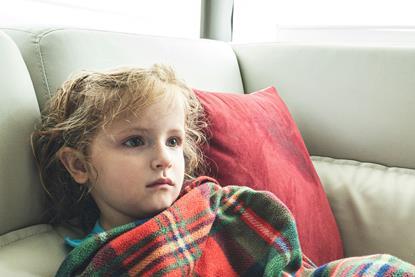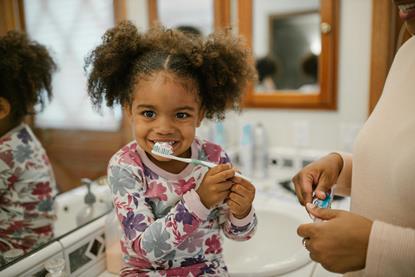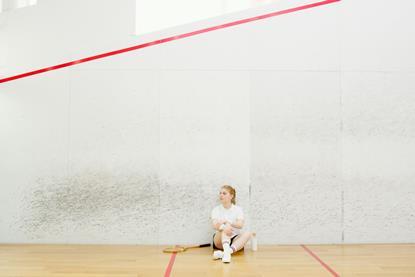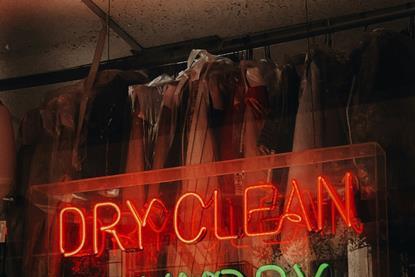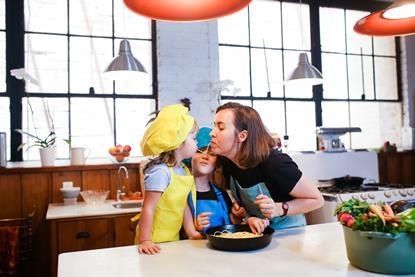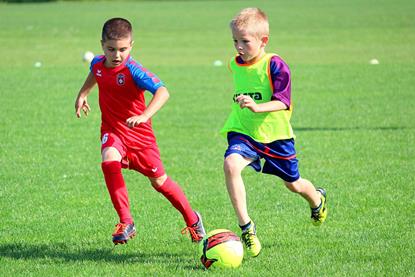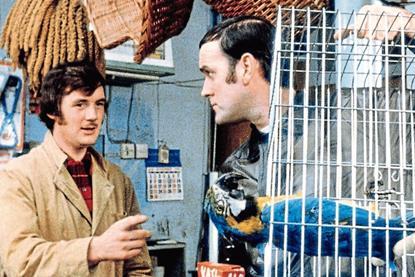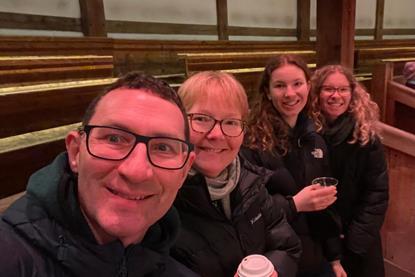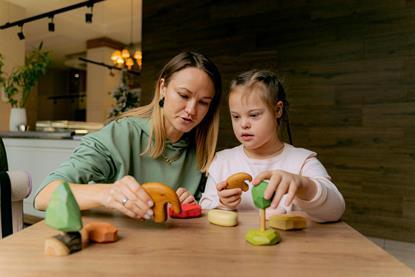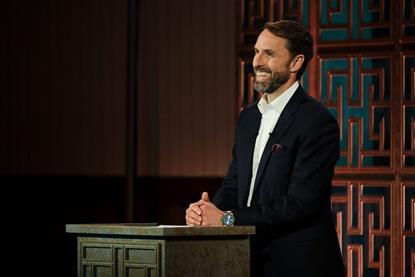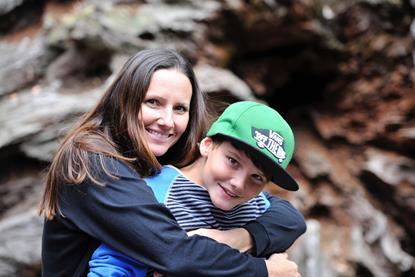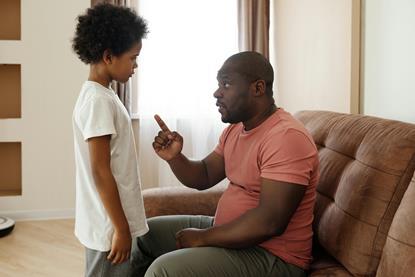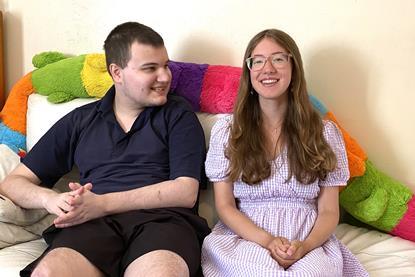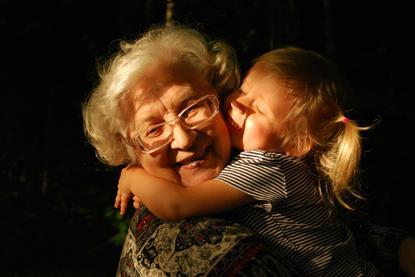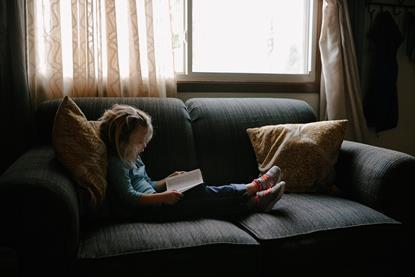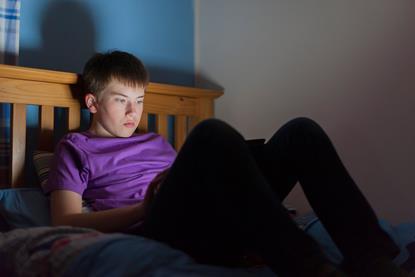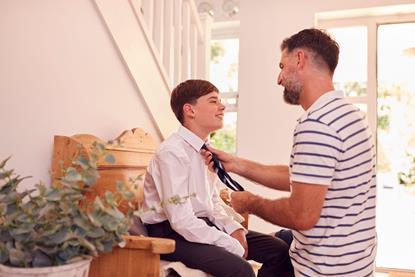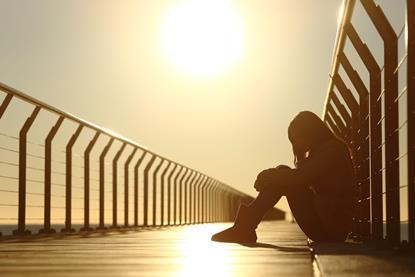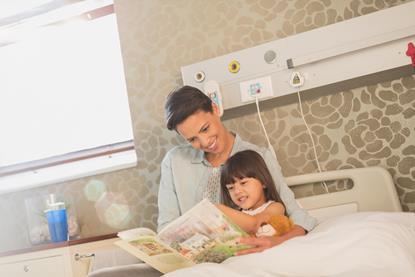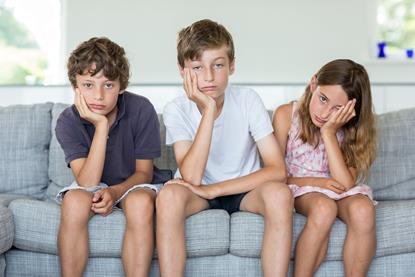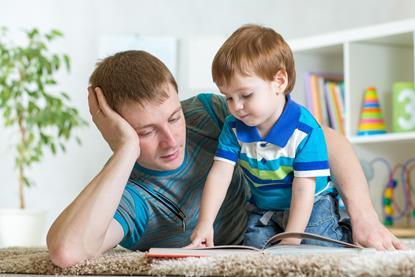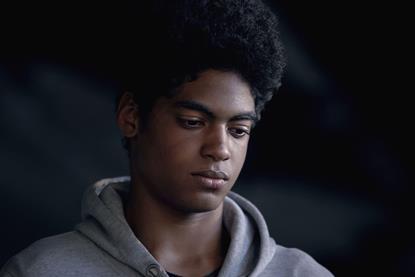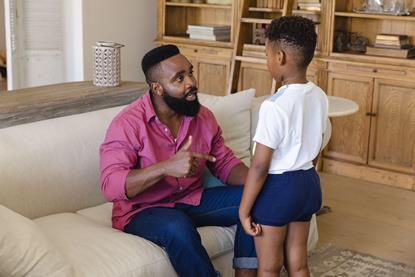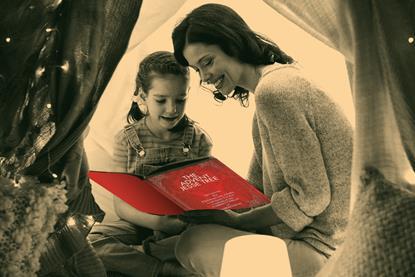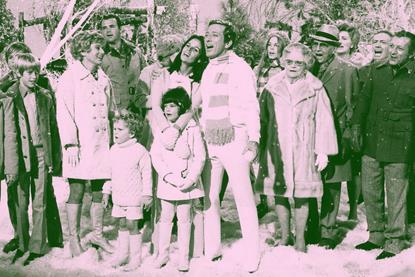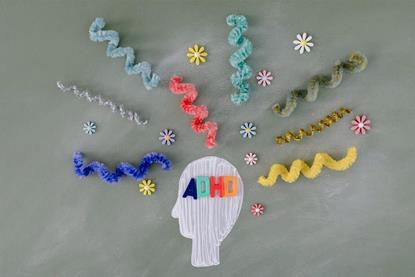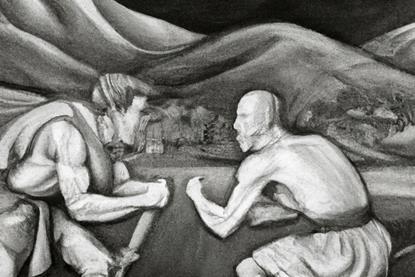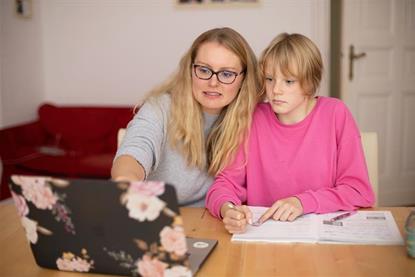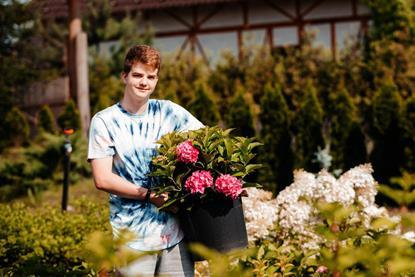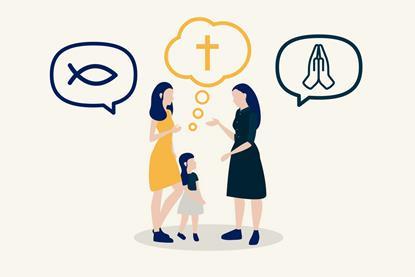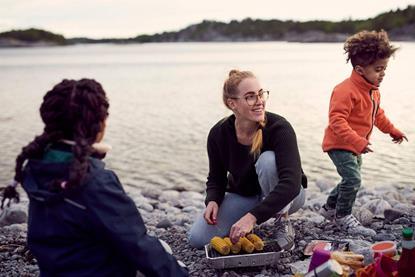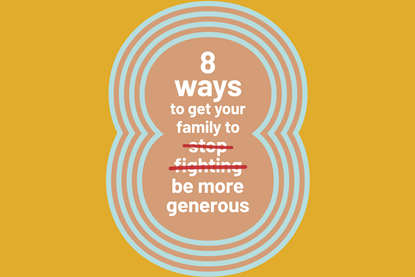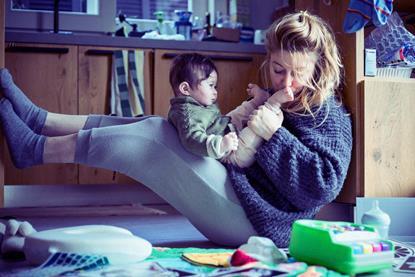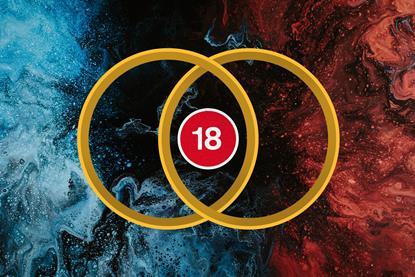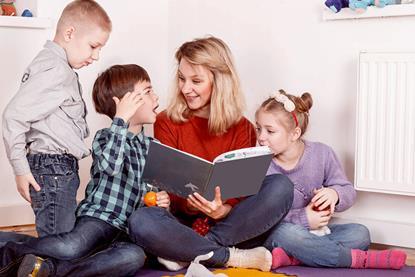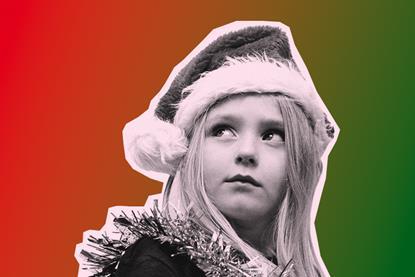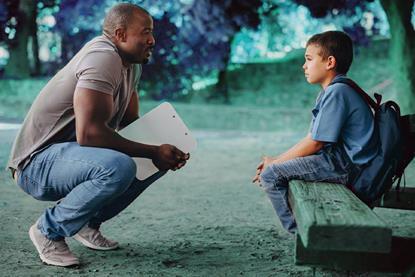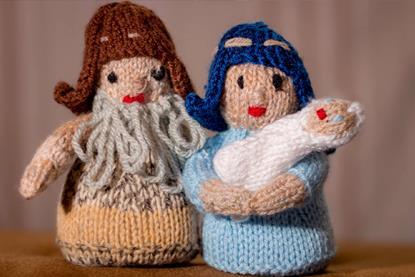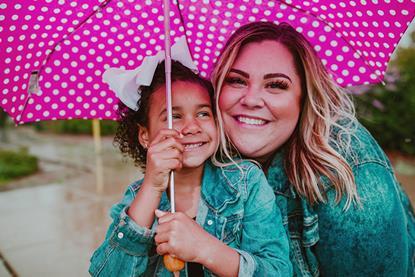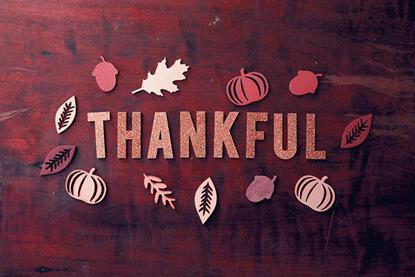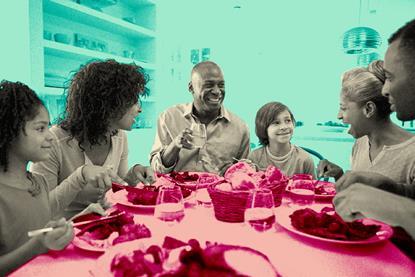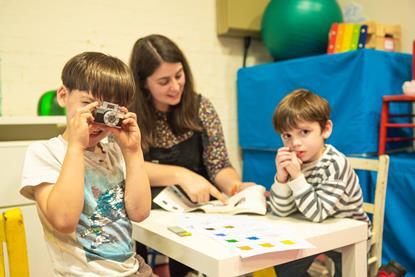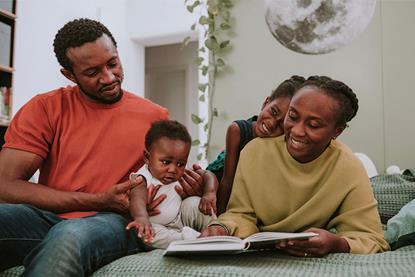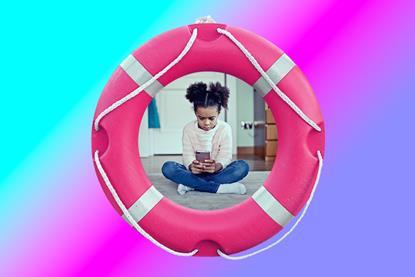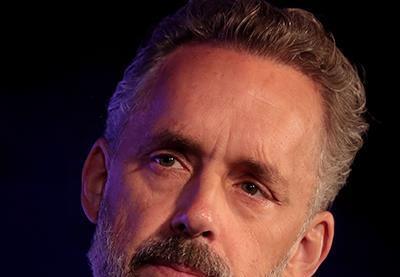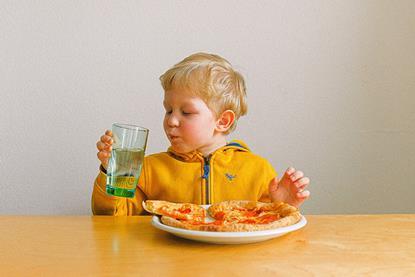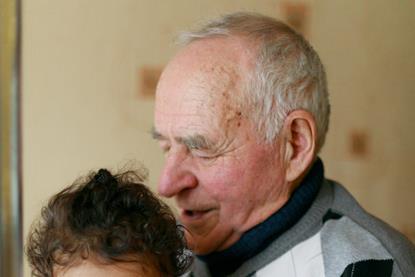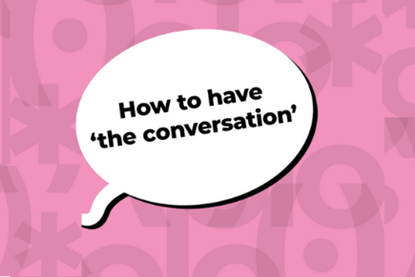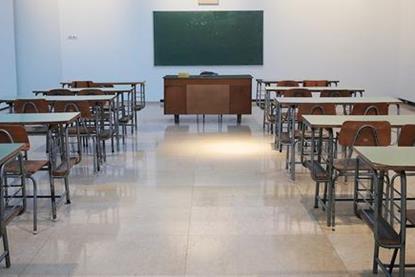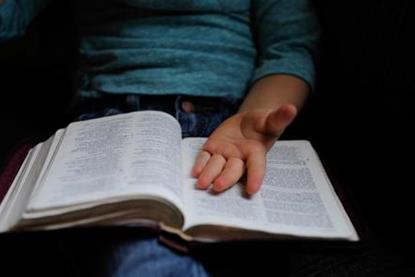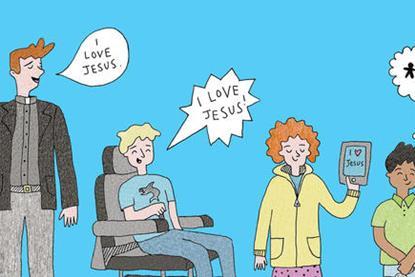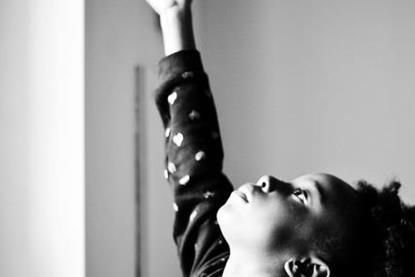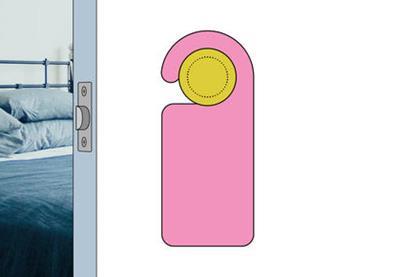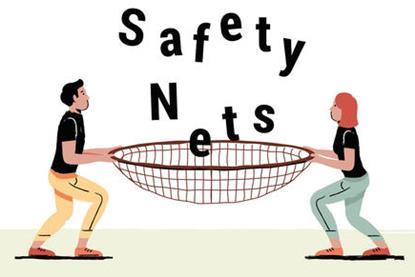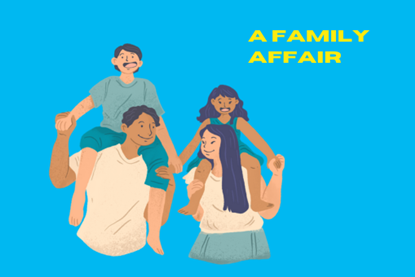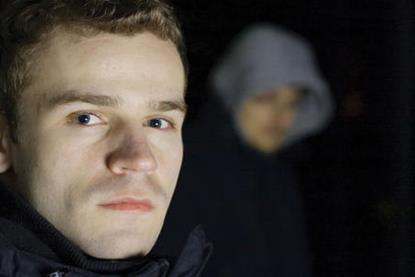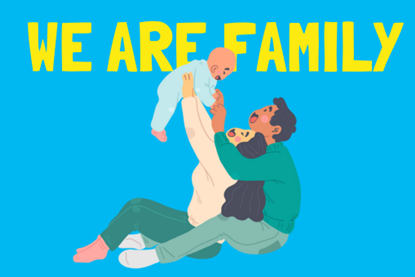Family & Parenting
The summer holidays can be great times to bond with your children and develop their faith. Here’s how…
Things to try this summer - Keeping your children busy in the summer holidays
Why Christian parents don’t embrace their children’s artistic gifts and what we can do about it
Picasso said: “Every child is an artist. The problem is how to remain an artist once we grow up”
The Serpent and The Seed: An online game that is a beautiful, generous gift to the world
Anyone familiar with Genesis 3:15 will immediately spot that this game has something to do with the Bible. For those less familiar, it’s an intriguing gateway into another world…
Christian parents should not let their children watch the new Harry Potter series
As an ex ‘new-ager’I want to share some concerns about parents letting their children watch TV series and films like the new Harry Potter series on HBO.
Christian parents should be fine with letting their children watch the new Harry Potter series
When I was younger, the Harry Potter books were still coming out. I remember my dad specifically taking my older sister to wait outside the bookshop to get a copy of The Deathly Hallows – and then, horror upon horror! – making her go to bed rather than read it through the night.
Answering your child’s questions: What’s the point of praying? Because God doesn’t change
We know that prayer matters, but if your home is anything like mine then the fast pace of busy family life often means it doesn’t get the time or the focus that you wish it did. With conflicting clubs and extracurricular activities routines are all over the place and bedtimes are not as consistent as they once were. Mealtimes are chaotic and often filled with others around the table too, and those special moments when you’re all together as a family are too few and far between.
5 ways Christian parents can engage with sex and relationships education in school
No parent relishes the prospect of ’The talk’ with their kids. And when it comes to the birds and the bees, Christians are no exception; talking about sex and relationships can be embarrassing for both parents and children. Uncertainty, or fear of “getting it wrong” often lead mums and dads to stay silent- even in Christian homes. My husband and I recently bit the bullet and broached the topic with our eldest son; it’s safe to say there were a few awkward giggles and some very red faces!
Getting the most out of school sports day - A guide for Christian parents
Amongst all the emails that come in from our son’s school, the one we open quickest is the one about sports day. Check the date, clear the diary, not to me missed!
3 helpful qualities for Christian dads to foster this Father’s Day and beyond
On June 15th this year, families across the nation will celebrate Father’s Day. Fatherhood is likely to bring up different emotions in families. For some – hopefully many – emotions will be positive, and the day will be a chance to give thanks for the dads within the home. For others, the day will bring up mixed emotions due to the absence of a father, or perhaps a dad’s death. Churches which engage with the Father’s Day celebration would be wise to remember these various experiences – while also encouraging dads (and male role models within the church) in their midst.
Playing is good for youth, children and their communities - here’s how Christian parents and churches can encourage it
Today the Raising the Nation Play Commission released it’s report Everything to Play For: A Plan to Ensure Every Child in England Can Play - it shows that spaces and opportuntities for play in the UK are being eroded and that perhaps unsurprisingly youth and children in the UK are some of the unhappiest in Europe. How can parents and churches play their part in addressing this? Well before we get to that let’s wind back and think what play actually is.
Answering your child’s questions: Why is God a Father?
With Father’s Day just around the corner you’ve probably begun to notice that the shelves have filled up with bright ties and blue socks declaring “BEST DAD EVER” and “DAD YOU’RE ROARSOME!” (who actually buys those?) Teachers are scrolling Pinterest for new ideas of cute crafts, and our kids are spending their days creating beautifully unique handprint cards - just like everybody else! Whilst this day is quite rightly a celebration of the men in our lives who care so wonderfully for their families, it is also a painful reminder of what has been lacking for so many others.
What’s your parenting style? Are you an elephant or a tiger parent?
King Solomon advised the sluggard to learn about hard work from watching an ant. What animal would he suggest a parent learn from? There are a number of choices and I wonder which species you might set as your role model. Perhaps you are like the tortoise – slow and patient with your children, compared to the hare who rushes them from task to task. Or perhaps you are like the eagle swooping over their heads, ready to plummet down to their level at any necessary moment. Or perhaps you are like the Mother Hen sheltering them under your wing, after all that’s a biblical picture (Luke 13:34).
5 ways to help children respond with kindness and faith when the world doesn’t make sense
Last week, we went to see the Liverpool parade. The sun was out, the atmosphere electric, and spirits were high. As a family, we navigated the usual big-crowd quirks: people pushing in, kids on shoulders blocking views, random traders weaving through the chaos selling knock-off scarves and super loud horns. It sparked some good conversations about patience (we were waiting for seven hours!), and about kindness, as we encouraged the children to make room for people who couldn’t see, invited the smallest to go to the front, and choose to be considerate even when it felt like no one else was.
Chloe Swart: You don’t have to be a superhero parent. Just love Jesus deeply and live that out in front of your kids
Chloe, can you describe what it was like growing up in a home where your parents were so actively involved in mission?
Marriage matters: The importance of Christian parents making space for each other
A few weeks ago, headlines and social media feeds were flooded with an image of the Prince and Princess of Wales embracing as they gazed out over the beautiful landscape of the Isle of Mull. The moment marked their 14th wedding anniversary, and they chose to return to the Scottish island they had first visited back in 2003 while dating as students at St. Andrews.
If God is all powerful, what’s the point of praying?
If you’re parenting a pre-teen like I am, then in the midst of all their hormonal lethargy, you’ve probably heard this question… “What’s the point?”
Helping your child start school with confidence and faith
The school places have been finalised, and the countdown has begun. Whether your child is starting school for the first time, entering a new year, or starting at a new school, new beginnings are a big deal — and change is always hard. So how do we prepare our children in mind, body, and soul?
Sport, faith, and friendship: Evangelism for the everyday parent
Every Sunday morning, thousands of parents gather on the sidelines of children’s sports fields across the country. Some stand quietly with their coffee; others make small talk while the game unfolds. Earlier in the week, many are already at swimming pools before sunrise, watching through glass panels or sitting in cafés while their children train. For those in more competitive or elite pathways, weekends are spent travelling to competitions – families packed into cars, clocking up hours together, waiting and watching.
“School is a waste of time!” What Christian parents can say in response
Over the last couple of decades, various socio-economic, political, and cultural developments have contributed to the advanced and complex world we now live in. One of the outcomes of this transformation is that the world of work has undergone a structural overhaul, emerging as a landscape that includes all kinds of new and novel professional choices and career paths. Against this backdrop, one of the colossal questions is: does school still hold the key position it once held in contemporary society? More importantly, what do we say to the significant proportion of young people who think that school is a waste of their time?
What’s your parenting style? Are you a helicopter or a satellite parent?
You have probably heard of helicopter parenting - the idea that parents hover over every move their children make, ready to swoop in and protect them from harm. This style has been made even more possible by smartphones: I can see where my children are at any moment. Is he going to get home in time for dinner? Why is she in the park when she should be at dance class? I just want to check that they both made it home from school.
Parenting without pretence: How vulnerability builds stronger families and communities
It’s a sunny Tuesday morning in London and everyone in my family is getting ready for their respective days – a dad, a mum, and five kids. What could possibly go wrong? As it turns out… socks. Socks can go very wrong.
Trussell reports food poverty is increasing: Christian parents and churches can provide hope in these difficult times
You don’t have to look very hard to see that the majority of people in the UK are feeling the pinch of the cost-of-living crisis. Our money has to stretch further. Our jobs have become more unstable. The price of food has risen. We know that some people have to make a choice between heating and eating. But how bad is it really? What can we do as Christians to help alleviate some of the pressures from the families we might know. And how, as a Christian, can I survive in the middle of it all, living in a house with one income, three children and a high rent bill each month?
4 ways to celebrate your child's birthday, honour God and not break the bank
The celebration of a birthday brings excitement, anticipation, and lots of fun. Celebrating a child’s birthday increases their self-esteem, sense of belonging, and overall well-being. But are parties now becoming too expensive to host given the current climate? A recent article in The Times suggests they are, with many parents delaying parties—leading to a dip in the party industry in the UK.
Olly Goldenberg: 'I am so grateful to be able to pass on the spiritual legacy of my parents to my children'
I was born into a non-Christian home. My Dad was a nominal Jew, raised orthodox in Sudan he moved to the UK and had long since left the synagogue behind. My Mum, a gentile, would have called herself a Christian, but this was more a matter of culture than heart submission to the Lord. More a wedding and funeral follower than a devoted disciple of Christ. That all changed when I was 4 years. Both my parents became Christians around the same time attending church became a regular part of our lives.
Answering your child's questions: What’s the point of praying? Because God is all powerful
Praying with our children is one of the most meaningful and powerful parts of parenting. In fact, teaching them how to pray is quite possibly the most significant thing we could ever teach them! But it is often one of the hardest habits to help them form.
Reframing our failures: Good enough parenting is good enough
I grew up in an era where pass and fail were clearly defined. Teachers would liberally use red pen to denote wrong answers (especially in my maths book), and there was no sign of EBI (“even better if”) or just a coloured dot alongside answers that weren’t right.
5 ways Christian parents can teach their youth and children about generosity
Nurturing a spirit of generosity in children and young people is integral to encouraging their faith. The more they understand God’s lavish generosity towards them, the more likely they are to want to be generous themselves. A generous spirit will, in turn, deepen their faith as they witness the positive impact of their generosity on the world around them. Parents clearly have a pivotal role to play in shaping their children’s attitudes towards giving—but how exactly can they do this?
Safeguarding and intergenerational relationships: Helping Christian parents explore the tension
You are running your first-ever Messy Church session. After months of planning, training the team, advertising the date, and talking to everyone you know about coming along to the launch, people start to arrive, and your church hall is now looking full. You are busy welcoming people and ensuring that your team has everything they need when you notice that your welcome desk team member is waving you over. You weave your way across the room to check that they are okay.
This Mental Health Awareness week, Christian parents can turn to the Bible for help with the well-being of their children
As Christian parents, we’re probably used to wanting to find out what the Bible has to say about the issues facing us and our families. We want to use scripture to help us navigate the world, and whilst sometimes we can easily see what the Bible has to say on a topic (there is an abundance of wisdom on navigating conflict well, for example), at other times it can be a little trickier.
Thunderbolts* – Redemption in the face of darkness
It’s been a bumpy road since Endgame but this is a fantastic addition to the Marvel universe because it’s actually able to stand on its own as a good film.
Pop the Balloon LIVE: Helping Christian teens navigate identity in a swipe-and-judge culture
If you’ve not yet come across it, Pop the Balloon is a new dating series on Netflix that’s grown in popularity after being streamed on TikTok. A contestant walks along a line of potential matches and decides whose balloon to ‘pop’, effectively rejecting them based on first impressions alone. It’s a high-pressure test of appearance, confidence, and social power. Who’s attractive? Who’s awkward? Who gets left standing? No conversations. No background. Just a snap judgment, broadcast for millions to see.
When Sephora meets Scripture: Helping our girls see true beauty
It was November 2024, that time of year when I ask my children for their Christmas lists to avoid any disappointment on 25th December. But this year felt somewhat different with my three daughters. As I scanned their lists, I found myself searching in vain for the familiar comforts of LOL Dolls, Barbie Dreamhouses, and Lego Friends sets. Instead, I was met with a line-up of brand names completely foreign to me — Laneige, Bubble, Rhode, Sol de Janeiro, Drunk Elephant, Fenty, Mario Badescu (had Ken been replaced by a Romanian counterpart?). Then it struck me, with a twinge of sadness, that my daughters had quietly moved beyond the innocent world of toys, trading them for the sophisticated realm of skincare and beauty products. Even my nine-year-old, surprisingly well-versed in the world of luxury brands, appeared caught up in this early wave of consumer savvy. It left me wondering: were they growing up too fast, or was I simply unprepared for how childhood itself has evolved?
When parenting advice doesn’t work: Understanding PDA in autistic children
“Have you tried praying more for your child?”
What does God look like?
Once upon a time, I was helping my 5-year-old brush her teeth, and she asked, “Does God have teeth?”
How to raise children who know they are loved by God - and you - even when they don’t “perform”
In part one, we explored the beautiful truth that God made sport as a gift, a joy, and a way to reflect His creativity. But let’s be honest: that can feel idealistic. We don’t live in a perfect world. Sport, like life, involves disappointment—injustices, injuries, losses, and rejection. So how do we help our children thrive in that reality?
What’s your parenting style? Are you a dry-clean parent?
One of the features of modern life is that we have learned to outsource. I can no longer fix my car, my computer, or my dishwasher—and I know I cannot ‘fix’ my children! These things are tremendously complex, and I am more likely to do harm than good if I tinker. The solution for the first three is to take them to an expert who understands them and can do something about it. I can rest assured that the mechanic at the garage can sort out my brakes, my suspension, and my tyres, and get me safely back on the road. I even have an expert in dishwashers called Geoff, who I occasionally call around. He sucks through his teeth, then gets on with the job and charges me next to nothing.
A woman’s place? Rethinking work, home, and biblical calling
I remember the first pay packet I received; it was actual cash in a small brown envelope and was the result of my eight hours in a local coffee shop. I loved that job—the freedom it gave me, the finance it provided, and (retrospectively) the experience it gave me of the working world.
Motherhood as ministry: The case for staying-at-home
From the beginning of time, the role of women has often been tied to domesticity and child-rearing. The traditional roles undertaken by women—roles sometimes looked down on today—positively defined many of the matriarchs of the past. Yet today, society critiques the maternal homemaker stereotype and instead celebrates the contributions women have made beyond the home. With the exception of Mothering Sunday, the role of ‘motherhood’ and ‘homemaker’ now seems little celebrated or advocated for.
Why God invented the game: Five faith‑filled reasons sport matters to your family
If you’re reading this, I guess you are parenting a child who loves sport—possibly to the point of obsession. Maybe you love it too. Whether your weekends are spent on muddy sidelines or at early‑morning training sessions, you’re probably asking deeper questions about how all this sporting enthusiasm connects with your Christian faith.
Fiction as a faith‑builder: How Christian parents can use stories in discipleship
Long ago, before my husband and I had children, we were staying with a family who had teenagers. Together we watched a TV series featuring an alcoholic. I was surprised that the parents allowed their young people to watch it, but the ensuing discussion proved invaluable.
A Christian parent’s guide to mandatory reporting: What’s going on and why it matters
Trigger Warning: This article contains information about child sexual abuse
What’s your parenting style? Are you a lawnmower?
If you could describe your parenting as a picture, what would it be? A helicopter always circling around; a bulldozer flattening everything in your path; a gardener, carefully nurturing tender stems?
Gifts not grades: Recognising every young person’s God-given talents
The summer term in schools means different things to different ages of children and young people. For some it is the term of sports day, end of year shows, outdoor PE lessons and being allowed to play on the school field. For our older ones this term brings very different events ahead; this is the term of exams, and all that they bring with them.
There is no good parenting without Good Friday
We spend a lot of time on NexGen providing helpful, biblical, practical articles for Christian parents on all manner of subjects: films, social media, additional needs, disability, schools, awkward questions, reviews of Christian resources and much more. But the most important element in Christian parenting is you. That sounds obvious, after all the clue is in the word! But sometimes we might forget the centrality of that truth. Your parenting starts with you. Not the skills, not the tips, not the information – you.
The online world: Friend or foe for Christian youth and children?
We are all increasingly aware of the role that online spaces play in our daily lives – from shopping to entertainment, work to recreation, and even chatting with the postie through the doorbell. Life is now lived in a hybrid reality that is here to stay.
When church attendance isn’t simple: Parenting, faith, and the beauty of flexibility
When our children were young, attending church on Sundays and midweek was a regular, prioritised part of our weekly rhythm. If you’d asked me back then, with toddlers in tow, what parenting teenagers would look like, I’d have confidently told you church attendance would be mandatory.
It takes a village: Rediscovering biblical parenting through community
Think of how often the wider faith community shaped the lives of biblical characters. When Jesus was 12, his mum and dad found him in the temple, sitting among the teachers, listening and asking questions – absorbing the wisdom in the room. He gravitated towards those who could teach him and guide him. Moses was raised by his biological mother, Pharoah’s daughter and the Egyptian royal court. His mum saved him from certain death, but it took the care, protection and the influence of different people from diverse cultures to shape him into the leader he became. Timothy’s faith was nurtured by multiple generations of women before Paul stepped in as a spiritual mentor. And Samuel – his mum, Hannah, entrusted her son to the care of the temple community. Orphaned Esther was taken in by her cousin Mordecai, who raised her as his own daughter and played a crucial role in God’s plan to save the Jewish people from annihilation.
Finding peace after loss: Trusting God while supporting your child’s grief
Grief is one of the most challenging experiences that we endure in life. Whether it arrives suddenly or evolves over time, nothing fully prepares you for the plethora of emotions that it brings. When my father passed away last year, the grief was overwhelming. Though I continue to hold on to my faith, there are days when the weight of his absence feels unbearable, and the notion of ‘healing’ seems distant.
From headlines to hope: How Christian parents can guide youth and children through troubling news
The news isn’t easy for anyone to hear right now, least of all our children. From war and political divisions, to natural disasters, the headlines are enough to fill a grown adult with terror, let alone a young person.
A creative world with no imagination – A Minecraft Movie fails to craft a story
Film: A Minecraft Movie
Answering your child’s questions: Is God dead?
“This parrot is no more! It has ceased to be! It’s expired and gone to meet its maker! This is a late parrot! It’s a stiff! Bereft of life, it rests in peace!”
Make your home the safest space for the biggest conversations with your youth and children
I don’t know if you knew this already, but you parents are scary to many younger youth workers.
Grace Keir: The 'young preacher of the year' on the prize that changed her life
In Spring 2023 16-year-old Grace Keir gave a talk on the subject ‘Why there is hope’. So far so unremarkable, plenty of 16-year-olds talk on similar subjects up and down the UK every week. But this talk was recorded and sent off to the Premier Unbelievable Youth Preaching Prize (with Spring Harvest) and Grace won.
Sweet dreams - Sleep is foundational for the mental and spiritual health of youth and children
I can remember as a child and teenager trying various tactics to push back my bedtime. It was like going to sleep was a bad thing and creating a battle or managing to get to bed later was somehow a worthwhile victory. As an adult I now enjoy getting a good night’s sleep – but occasionally there is a battle with myself to get off the sofa and make it happen.
Having a Disability Champion can revolutionise life for disabled youth and children in your church
When we moved to our current church a few years ago, most people who talked with me for more than a few minutes soon discovered that I’m passionate about churches becoming more accessible for disabled people, including disabled young people and children. It wasn’t too long before our vicar approached me and asked if I would consider being the Disability Champion for our church. After praying about it, I gladly accepted. I want churches to not only welcome and include disabled adults, youth and children, but to also be places where they can feel that they truly belong. But what is a Disability Champion and why might your church need one?
As Gareth Southgate considers a generation of lost boys here are some reflections for Christian parents
In recent weeks, the success of the Netflix drama Adolescence, with its visceral depiction of a teenage boy’s crime and its effects on his family, has led to widespread conversation on boys and masculinity. Sara Taylor has already helpfully explored ways in which this might inform parents in their relationship with kids.
Mothering Sunday: A chance to celebrate mothers and consider the implications of mothering for mission
One of the things that I love most about being a Mum is receiving hand delivered tokens of love. I have kept notes from my now-teenagers, one of whom, at six, declared they loved me nearly as much as their favorite toy. I have photos of a special stick found ‘just for me’ by a sweet little redheaded boy who is now as tall as I am.
Should Christian parents be prepared to smack their children? The case against corporal punishment
The Research is unequivocal; smacking children is harmful. Studies have shown that the negative effects of smacking include problems with social-emotional development, self-regulation, and cognitive development. Smacking also alters children’s brain response in ways similar to severe maltreatment and it increases the perception of threats.
Should Christian parents be prepared to smack their children? The case in favour of corporal punishment
It’s not an easy thing to talk about corporal punishment. Many British parents are wary even of broaching the subject with one another, let alone normalising it. For many people, the potential for justifying abuse is too high. Anyone defending a genuinely Christian view of corporal punishment should never justify abuse. But in our zeal to combat abusive forms of corporal punishment, we also risk eradicating this biblical practice altogether, forgetting that, when practised in love, it is intended for good not evil.
Siblings of youth and children with additional needs need support too - Here’s five things Christian parents can do
This article is written by Phoebe Ridout, who is the daughter of Mark Arnold (from the Additional Needs Alliance). Phoebe shares her experience of growing up as an additional needs sibling to her brother, James, as well as offering learnings for us all…
It’s not all in the head - Physical activity is really important for the mental and spiritual health of youth and children
In 2024 there were 9.3 million NHS Couch to 5K runs started in the year as people sought to get healthy. I really enjoy physical activity but there are times (especially at the end of a busy day or if it is cold and dark) that dragging myself away from a comfy sofa is quite a challenge. However, one thing I do know is that being active is good for me and I always feel better having chosen to abandon the sofa for exercise.
Christian grandparents: An underused resource in the faith lives of youth and children?
It’s over 20 years now since my Grandad moved on to heaven, but I am still inspired by his prayers and the role model of faith he was to me. His well-worn Bible was always open next to his favourite armchair, and he told me on so many occasions that whilst he couldn’t physically do much in his later years, so he would sit talking to Jesus for large portions of the day, particularly praying for me and my family. I will never forget him. His faith inspires me still now and will do for the rest of my life.
Christian devotions at home for children with additional needs are hard but worth working at
Hands up if you feel pressured by your church to do family devotions every morning. In some areas of our wonderful church, we can be left feeling that having daily family devotions is compulsory and doing it in the morning brings extra holiness points.
We might be facing a pornography pandemic but Christian parents do have weapons to fight back with
The statistics are bleak. A 2023 report from the UK Children’s Commissioner found that by the age of 13 half of all children have viewed pornography. The porn that is freely available on the internet isn’t like the magazines of the past. Videos are often harsh, involving scenes of sexual coercion and aggression.
Now parents know which school their year 6 children are going to it’s time to start getting ready
Our youth and children make several big steps in their life but as parents and carers we make those steps with them and can be as concerned and nervous as they are. One of the biggest steps our children make is starting at secondary school and that certainly is a significant change for us parents!
Our children and young people need the good news not mere happy news
Rachael Newham considers whether we are passing on an emotional prosperity gospel and what a healthier approach might be.
Parents are the key to bridging the gap between church and school
Ashley Nichols sees parents as playing a pivotal role in helping schools provide appropriate space and time for children and young people to consider the Christian faith.
Christian parenting in hospital: surviving through everyday faith
I’m sitting just to her side, wedged between the ward wall and my child’s hospital bed. For me and many other parents this has become a familiar yet daunting place. The rhythmic soundscape of oxygen masks and intermittent beeping from machines becomes our lullaby. It merges into the background of chatter and children’s cries, as we try to rest and get some sleep.
Hand in Hand Conference 2025: A call to action for children’s and family ministry
As the skies drizzled on a chilly Friday afternoon in February, the excitement surrounding the 2025 National Children’s and Family Ministry Conference, Hand in Hand, was anything but damp. Over 600 attendees arrived at the Bethel Convention Centre in Birmingham, where the warm, vibrant welcome was evident from the moment they stepped onto the red carpet. This year, the event found a new home, bringing with it a fresh energy and a renewed sense of purpose in children and families ministry.
Are smartphones rewiring my kid’s brain?
Robin Barfield wonders if Christian parents are sometimes a little too negative on the impact of smart phones and social media. For an alternative perspective click here.
The Anxious Generation by Jonathan Haidt might have an alarmist title but there is plenty in the book that Christian parents can agree with
Parenting is and has always been a challenge. Teenagers find ways to push boundaries. That’s been the story forever. But in the digital age, the world of smartphones, selfies, nudes, social media and AI, today’s teenagers face challenges that most of us didn’t have when we were growing up.
Help! It’s February half term!
What is your family hungry for this half-term? I’ve put together a menu for you to peruse. It’s not a to-do list; there’s no pressure to tick things off, you don’t have to cram in as many things as possible to make half term a great time for your family (or at least bearable!).
Use the Gospel to transform your approach to your child’s behaviour
How do you approach your child’s behaviour? Do you find yourself giving commands or trying to persuade? Are you an authoritarian or gentle parent? As a Christian parent, you feel like you want to be able to give your child clear, simple instructions for how they are to behave and why. You also want to speak to their heart, not just their behaviour.
Childline’s tips on tackling loneliness are helpful. But Christians should go further.
This month Childline revealed that that they ran nearly 5,000 online or telephone counselling sessions with youth and children in 2023-24. There are lots of issues that worry youth and children but, in those sessions, the main concern was loneliness. This isn’t an outlying report. The Office for National Statistics said something similar about the same time period. Loneliness, it seems, is a big problem.
Discipline – Getting it right, biblically, legally and practically
When you think about discipline, what comes to mind? Perhaps it brings back memories of how you were treated as a child. Those memories could be positive or negative. As parents, we know discipline is key in helping children become well-balanced and responsible people, but the way you approach discipline can have a lasting impact on your child’s emotional and behavioural development.
A Parent’s Guide to Safe and Enjoyable Sleepovers
Sleepovers are a cherished part of childhood—an opportunity for children to bond with friends, and enjoy the freedom of staying up far too late! For parents, sleepovers are a big moment, as the fun also comes with the responsibility of ensuring everyone is safe and looked after. With stories of peer-on-peer abuse in the media, it’s natural for parents to have concerns. So let’s look at how you can make for an enjoyable and safe sleepover.
A parent’s guide to safeguarding
Most parents want to protect their children, ensuring they thrive in safe environments. For many families, this extends beyond their homes and into the various clubs and church communities where their children participate. Whilst these places may offer growth, friendship, or spiritual development, parents need to be aware that safeguarding ...
When ‘why don’t you listen?’ actually applies to parents
Joel Toombs suggests ways in which you can boost your conversation in 2024
Take care of your kids! how to develop safeguarding in your church
Do you know what safeguarding approach your church takes?
Setting yourself up for faith conversations in 2024
Do conversations with your kids come easily?
‘God with us’ in a family with additional needs
What is the toughest part of Christmas for you?
Is it OK to talk about Santa and does this undermine our words about Jesus?
What was your experience of Santa growing up?
Give glory to God this Christmas (and ditch ’the elf on the shelf’, please!)
Have you had to make adjustments to your Christmas routine?
Maybe Christmas doesn’t come from a store: how to be imaginative as you celebrate God's gift to us
Do you know your love language?
‘I find it easier to share Jesus with my children at Christmas: here’s how I do it’
Do you find Christmas is a good time to share faith?
How to share Christmas gifts (without going into debt!)
How many gifts do you typically buy?
‘Mum can I get a tattoo?’ What to say about tattoos and piercings in the light of the Bible
Have tattos been an issue in your home?
A how, a wow and a bow: a Christmas meditation for your family this advent
Have you lost the sense of wonder of Christmas?
‘Teamwork makes the dream work’: how one Christian family is tackling selfishness
Is selfishness the root of issues in your family?
Hitting children is harmful and God does not give harmful parenting advice
What kind of discipline methods do you use?
‘I hate you’ could be the start of a fruitful conversation. How to make a Christian response
Have you had to field unwanted personal attacks?
Emma Watson, Jim Carrey and Michael Phelps have it, but what should you be praying if your child has ADHD?
When did you first become aware of ADHD?
Yikes, I need 70 hours a week to fit it all in!
What is the maximum you have ever worked in a week?
Juggling childcare and a day job - how can Christian parents flourish?
Do you prefer working from home?
7 ways to prepare for relational change in your family
Was ‘leaving for uni’ your biggest transition?
The mistakes I have made as a Christian parent, have made me a better parent
Your worst mistake as a parent?
What Christians can learn from the Princess of Wales’ parenting rules
Where do you get your parental wisdom from?
When your parenting journey isn’t what you expect
How close has your parenting been to what you expected?
Conversation is key to parenting, but how do you create the time and place?
Joel Toombs shares some mentoring approaches that will take time with your children to a new level
How little known feasts in the book of Leviticus can bless your family this autumn
Do you recall ever reading Leviticus all the way through?
What I would say to my younger parenting self about starting a new term
Which transitions do you recall most clearly?
5 parenting tips from the Bible’s most dysfunctional families
Which Bible passage do you find most relevant to your family?
10 Bible verses every Christian parent should know
What verses would you select?
Do you mentor your children? Here's why you should consider it
Was your childhood good, bad or ‘so-so’?
How to prepare Christian young people for part-time work
Do you recall your first Saturday job?
Why allowing children to eavesdrop is a good thing
Do you recall picking up ideas from adults by over hearing them chat?
‘If you think you have ruined God’s plans, don’t worry, you are not that powerful!’ How to support your teen's decision making
How clear were you about where you wanted to head when you were in your late teens?
How do I become a Christian? Answering the question every Christian parent wants to be asked
Where and when did you come to faith?
How to holiday with children so you get a break yourself!
Have you had an enjoable holiday camping with kids?
On holiday as a solo parent with three small children and God showed up!
Do you recall holidays from your childhood?
‘The number of teens not enjoying life has doubled’: How can Christians respond?
Are the teens in your orbit enjoying life?
Elijah’s challenge: Storyteller Bob Hartman with a poem you can recite to your kids
Are you good at learning poems?
Year out, uni or work? How christian parents can navigate the crisis
How clear was your pathway?
How drug gangs involve teens in their work and how Christian parents can be alert
How prevalent are ‘county lines’ where you live?
7 ways to bring ‘God-like’ order to your home
How tidy is your home?
8 ways to teach your children to pray (and leave them skills that will last a lifetime)
Do you recall when you learned to pray?
How to actually compare your child with other Christian children
Did you get compared with anyone when you were growinng up
‘Age verification on porn sites will help your children stay safe, but loop holes need closing’
Do your children access porn and how would you know?
Parenting by robots? Can Christians embrace AI?
Would you have a robot as a baby sitter?
30 ways Christian parents can love themselves better
How well do you love yourself?
Porn is wrecking the sexual appetites of children and young people. As Christian parents we must teach a better way
Do you recall your first exposure to pornography?
Being a dad is an incredible privilege - here’s how to make the most of it
What’s the best part of being a parent?
Bluey may be popular but my child’s behaviour has gone downhill. As a Christian parent what should I do?
What TV programmes seem to affect your kids?
Embarrassing your kids with your faith? Don’t lose heart, they will get over it!
What did you cringe at growing up?
Seeing the church service through a child’s eyes. How child-friendly are your songs?
Have you ever completely misheard a lyric?
8 ways to get your family to be more generous
Forming faith rituals
Do only dads exasperate their kids?
Ephesians 6:1-4 is Paul’s household code, or top tips for raising a good Christian family. But how relevant is it to your family in 2023?
Fans, feathers and balloons: it can only be illustrations for Pentecost Sunday!
How easy was it for you to grasp the Holy Spirit’s coming?
When your children slip away from faith
What would you do if your child decided not to follow Jesus?
My marriage has broken down, how can I help my kids stay in the faith?
How would advise a family where divorce has become necessary?
How laughter is God’s gift for disciplining your children
Was laughter a key part of your upbrining?
Should Christian parents ban their children from accessing YouTube?
At what age would you allow your child to access YouTube?
Should Christian parents be concerned about their children being on Instagram?
Which social media platforms are you on?
‘I am a local church pastor, who is conservative on LGBTQ+ issues. Here’s how I advise families.’
What kind of conversations do you find tricky?
Top worship songs to teach your kids
Which is your favourite?
When family is not straightforward. How to keep God central in a blended family
How many blended families did you know?
Eco-anxiety is a thing for children, but here’s how Christian parents can respond
When were you first aware of eco issues?
Keeping your kids in the faith when your marriage has fallen part
What events have challenged your kids?
‘We’re not that strong and we can be deceived’: a Christian commentator cautions you to be careful what you allow your kids to watch
Have you ever stopped a film because of what it was portraying?
5 movies to watch at Easter - alternative films to explore the Easter story with your children
Your favourite Easter movie?
You wouldn’t let your children watch a violent film so how do you talk about Easter
Are you tempted to sanitise the death of Jesus for younger ears?
5 things every Christian parent needs to know about dyslexia
Who do you know with dyslexia?
Badly behaved, or sensory processing issues? How the church can support the one in 100 UK children who have autism
When did you first become aware of autism?
If you think your parenting is less than perfect, it’s OK. God is there to help
Who’s the best parent you know?
Teaching your children about God when your partner doesn’t believe
Do you know couples who have different views on faith?
'Nature is the first cathedral': 9 tips to help your children enjoy God’s creation
When did you last play outside with your children?
With one in three teens experiencing an anxiety disorder, how can a Christian parent spot the signs and find a solution?
Have you ever spotted signs of anxiety in your child?
Why I believe your child can lead today
Do you believe your child can lead?
The Kids Getting Older Younger (KGOY) phenomenon and what Christian parents need to do about it
Jo Rowe looks at a phenomenon recognised by advertisers and begins a new approach with her eight-year-old son.
A parent educator re-thinks her approach after coming to faith
Have you assumed the Bible had just one approach to punishment?
How should you punish your children as a Christian? NT Wright answers
What approaches worked best in your home?
If you saw children fighting in the street - would you walk by on the other side?
Have you ever broken up a fight?
Talking about Jesus’ Return, without scaring the life out of your kids
What do you believe about the Second Coming?
How do you build your child’s emotional resilience?
What’s your top tip for building resilience?
How do you start to pray with your children?
How did you learn to pray?
‘What are you watching?!’ When your child likes material you don’t think is appropriate
Do you recall a particular TV programme being banned?
Pointers for Christian mums following Jacinda Ardern’s resignation as PM of New Zealand
What would you sacrifice for your family?
What to say if a young person ‘comes out’ in conversation with you
What is your first reaction when someone tells you something they didn’t expect?
Half term - a nightmare or an opportunity?
Forming faith rituals
Food fads and teenagers. How a Christian parent can gain a sense of balance
Are you the kind of person to go on a diet?
3 ways to respond as a Christian parent when your child winds you up
Have your irritations increased or decreased over time?
‘I don’t want history to repeat itself’: the lessons for Christian parents from Harry’s pain
Can you see history repeating itself in your family?
How do you encourage your kids to worship God?
How easy is your church worship experience?
Would you bribe your children to attend church?
Did you ever win a prize at church?
5 ways to help your teen when they are obsessed with a celebrity
Who was your ‘hero’ growing up?
The verse in Proverbs that has scared a generation of parents. How to understand it and learn from it
How good do you rate your start in the Christian faith?
Tips for ’taking Jesus' into your parenting in 2023
What are your top tips?
3 tips for a Jesus-focussed, guilt-free Christmas
As people who know grace why do we screw ourselves up so much?
What I have learnt about Christian parenting from looking after other people’s children
There are believed to be 90,000 au pairs in the UK
How do I fill the Christmas week as a Christian parent?
Do you find keeping children busy a challenge?
How coaching can transform your parenting
Have you ever received coaching?
‘Look forward to the teenage years as a Christian parent! These years can be some of your best as a parent if you navigate wisely’
Would you say you were an easy teenage to parent?
How to have a Jesus centred advent season
What’s your favourite part of the festivities?
Help, my teenager doesn’t want to come to church
Andy Peck looks at the heartbreak of children drifting away from church and faith and suggests some things to remember
If a child you knew was being sexually abused, could you spot the signs?
Would you be able to spot the signs?
John Lewis is right to highlight the value of foster carers. But let no one be unaware of the challenge
Ali Hull talks to two Christian foster carers about their very different experiences of fostering
Should you watch ‘I’m a Celebrity’ with your teenagers?
Would you want to appear on the show?
5 practical ways to encourage your children to be more grateful
Do you recall any regular chores you had to do?
An estimated one in six girls and one in 20 boys experience sexual abuse before the age of 16. Being alert to the dangers could save your child
Are you surprised by these statistics?
‘Parenthood caused me to lose sight of who God made me to be’
Lindsay Wright was lost in motherhood before rediscovering who she was
Could your child be part of a new generation of Billy Grahams?
Do you have any ‘evangelists’ in your family?
The day we decided our family culture had to change
Who sets the tone for the culture in your family?
Should you let your child play sport on Sunday?
Did you ever play sport on Sunday?
The next Messi or Ronaldo? How to support your child’s elite sports ambitions as a Christian parent
How would you support your child’s faith alongside their sport?
Light parties or Halloween? I know what I am choosing
Andy Peck found a local church which solved a tricky dilemma
Do you pray with your children? Here’s some ways that could work well
How often do you pray with your children?
Are you raising a Christian leader? You need to be
Do you see yourself as a leader?
We tried reading the Bible together as a family every day for a month. Here’s what happened
Could your family find a time to read the Bible together?
Lying is a huge deal in our family. Here’s how we have taught our children to tell the truth
How do you know when your children are lying?
TV presenter Dan Walker has a mobile phone contract with his children. Should you do the same?
When did you first own a mobile phone?
If faith conversations with your children feel awkward, here’s what to do
Andy Peck believes there are some conversation approaches that can improve your chats with young people
Need to keep your children safe online? Here’s how
How much do you know about what your children watch?
How can I check my children’s social media habits and not become a pain?
How many apps on your phone?
My children started copying my angry responses. So we now play a game that helps us all
What pushes your buttons?
How much do you pay the tooth fairy? Teaching your children about money
How much do you remember about pocket money in your youth?
Church and Monarchy Made Simple
How good is your understanding of monarchy?
Why does my child ‘lose it’ at home when they have been fine at school or church?
Are there things that typically press your buttons?
Keeping relations smooth between parents and youth workers
Are you a bit jealous of your youthworker’s connection with your child?
Do you need to speak your children’s language to relate?
How well do you speak ‘teenager’…?
‘No one will ever know who they are, but they changed my life’: Rob Parsons on his influences growing up
What might be possible if you began to dream?
Jordan Peterson urges churches to welcome young men
Are you happy to receive good advice, whatever the source?
The girls ‘brought football home’. What lessons are there for the church?
Jenni Whymark is thrilled to see England Women’s football thriving and asks whether we can learn a thing or two in the church
Could you be God’s answer to the ‘cost on childhood crisis’?
Could your church supoort this nationwide work?
Blessing and cursing on the playground? How to keep your child’s language on track
Where do you draw the line?
Ten tips for taking a trip
Longer, sunnier, days are here! The opportunity to take our children’s or youth group out for the day or just for a couple of hours on a club night has arrived! Perhaps to the beach or the countryside, maybe to a park or to a children’s farm, there are lots of places that we can take our children and young people to, including those with additional needs.
How I survived as a Christian at university
What would you say to someone about to head for uni?
Laughter is one of God’s gifts to us, so let’s share it with our kids
What do your children find funny?
When your children don’t get on with someone in your church
Wouldn’t it be great if anyone at church just ‘got on’! But we all know it’s not that simple
What to do when church clashes with something your child wants to do
Your child is excited about an option, but darn it, it’s on at the same time as church!
My children seem to be mixing heavily with their peers who are not Christians – how do I make sure they maintain Christian values when I do?
Have you ever had a sinking feeling when you see who your children are hanging out with?
How do we help our teens acknowledge their faith when Christianity is seen as uncool?
Are we realistically expecting our teens to stand out as Christians in the classroom?
Help! My baby won’t sleep! What should I do?
Sleep deprived and feeling just slightly desparate?!
Benefits of adventure as a family
Your children may be addicted to digital screens, but Dawn Savidge believes it’s time they started to live a little!
How can I grandparent as my children want?
It’s a joy having grandparents on hand to help out. But what happens when parenting styles clash with yours?
Talking about sex to your children
Can you remember how you learnt about sex? Was it a VHS describing what happens using euphemistic fruit images? Was it whispers in the playground? Was it graphic content seen online?
A level results: what's next?
This year, results day has been a little more difficult than normal - with young people away from school for the lockdown and many unexpected exam grades (both good and bad) ending up on certificates. Here, career advisor Frank Hutton settles our youth’s anxieties, offering advice on what to do in both positive and negative situations.
Talking about the tough stuff
There’s been a lot of difficult subjects to tackle with our children and young people in recent months. Annie Wilmot, a funeral pastor, author and mum-of-two, revealed how we can talk to our children about the tough stuff.
Parenting as a Church Leader
Parenting for Faith’s Rachel Turner, author of a new book from BRF entitled Parenting as a Church Leader, shares some encouragement.
How to do family worship in the home
Up and down the country and across the world, life has suddenly shifted gear for all of us. Families are thrown into the unknown situation of being together every day, with no clubs, activities or outings to break up the days and weeks. And not only do parents and carers now need to be the warm, loving and emotionally available adults that their children need, but we also need to act as pastors at a time when youth and children’s work is halted in most churches.
Coronavirus: How to minimise family tensions
Coronavirus has resulted in schools closing and many people going into self-isolation. Ruth Jackson spoke to Tim Alford, national director of Limitless (the youth ministry of Elim Pentecostal Church) whose family is currently in self-isolation due to his wife, Jen, displaying symptoms of the Coronavirus. To hear more from Tim on how to support young people and reach out into our communities at this difficult time, check out our social media sites @ycwmag
Why John Mark Comer banned his children from having smart phones
New research by Childwise found that more than half of children say they sleep with their mobile phone beside their bed, with most young people now having their own phone by the age of seven. The annual report into children’s use of media also found that seven to 16-year-olds spend an average of three hours and 20 minutes per day on their mobiles.
Storge: We are family
Registered users only: Download as a PDF here.
I don’t know. And it’s OK.
Annie Willmot shares some advice and encouragement for anyone who feels like they’re blagging their way through parenting
Family mental health
Registered users only: Download as a PDF here.
Discipling children with additional needs
Kay Morgan-Gurr explores spiritual development in young people with additional needs
How to be a family friendly church? It might involve nappies...
Annie Wilmott asks, who has your back when your toddler poos through their clothes? The answer, she discovered, was her community. And that has a lot to teach us about being a family-friendly church.
The uniqueness of family
Now, think of your family of unique individuals creating a unique collection of humans that is different from any other on earth, either now or that has ever been. The funny thing is, we generally see our own families as normal. The quirks and strange words are the only thing ...
How to help parents of small children survive church
The paradox of being up since 5am but still arriving late to church can baffle parents and those who are supporting them. Here’s how to help kids of small children feel genuinely supported in church.
The first 1,001 days
There is a growing body of research to support the importance of a child’s development from conception to the age of 2 (the first 1,001 days). But what does this mean for those running groups for these young children?
Parenting teenage girls
Meg Cannon is author of Hope Rising 365, a devotional for teen girls. She has so much wisdom on raising confident, Jesus-loving women.
Maintaining sexual intimacy after having children
Talking about sex is something we often shy away from, but sex therapist Emma Waring has dedicated her life to the topic. She spoke to deputy editor Emily Howarth about how couples can maintain sexual intimacy after having children
Finding my voice: the experiences of a child with quadriplegic cerebral palsy
12-year-old Jonathan Bryan was labelled with profound and multiple learning difficulties (PMLD). The only part of his body he has full control over is his eyes, which he uses to communicate. He shares his experience of education, faith and the need for us to create spaces for all children and young people to actively contribute
Nobody puts baby in the corner
Margaret Pritchard Houston challenges us to make the most of our crèche spaces
Bun in the oven, Bible in hand
The nine months before giving birth can be a great time of preparation. Children’s worker and mum of two Annie Willmot shares her thoughts…
Why it’s OK to entertain your kids with screens
As the summer holidays begin, former Blue Peter presenter and mum of two Helen Skelton talks about why it’s so important to take a break and how electronic devices can help.
Parenting your teenage children
In the Sermon on the Mount, Jesus turns to his followers and says: “You are the light of the world” (Matthew 5:14). The first picture Jesus uses to illustrate this is “a city on a hill” which has come to represent the Church. As we gather together as this community of ‘called-out ones’, which is what Church literally means, we are to be this light. The second picture is a “lamp on a stand”, whose job is to “give light to everyone in the house”.
I’m so tired
“I’m feeling so awake today!” said no teenager ever. We all know the signs of tiredness: bags under the eyes, pallid skin, frequent headaches, dry lips, sugar cravings. And that’s just when we look at ourselves in the mirror!
Forming faith rituals: Contemplative family time
What does the phrase ‘family devotions’ conjure up for you? A family of four sitting around the kitchen table, one quietly reading the Bible and another leading the family in intercession for the nations?
Single parent and proud
Anne Phipps explains why she thinks we need to shake off the negative stereotypes of single parenting and embrace its positives as well as the difficult bits
Tightropes & safety nets
Parenting can feel like something of a high-wire act, especially when it comes to discipline. Rachel Turner explores the balance between punishment, teaching our children consequences and giving them room to make mistakes
The Royal Family and mental health
The idea of the British stiff upper lip has been traditionally synonymous with our Royal Family, but the past few months have turned things upside down.
It takes a whole church to raise a child
Despite two decades of unparalleled investment in youth ministry, the figures show that the Church is still haemorrhaging young people. Krish Kandiah explains where we’ve been going wrong, and why youth work can’t be left to youth workers.
A family affair
I got an urgent call from a teenage girl who had locked herself in the toilets at KFC. Life had got too much and an increasingly toxic relationship she was caught up in had taken a desperate turn for the worse. We hadn’t talked in over a year, but that day she called me to come and find her.
Modern Family
There's a new family on the block: gangs. CEO of XLP, Patrick Regan, outlines the state of gang activity in the UK, and explores how the Church can be the hope – and the family – these young people need.
Part 2: We Are Family
THIS WEEK’S PASSAGE 1 CORINTHIANS 12:12-23











